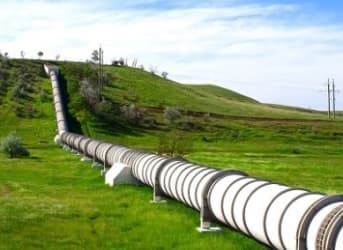ExxonMobil is building out infrastructure in and around the Gulf Coast, linking up oil and gas fields in Texas to refineries in Louisiana.
The oil major completed the flow reversal of an oil pipeline, allowing crude to move east towards Louisiana. The 71-mile North Line pipeline will add a bit of capacity to the region, allowing for greater connections between the Permian Basin and their downstream customers.
The flow reversal allows about 15,000 barrels of oil per day to reach Delek US Holdings Arkansas refinery. Up until the pipeline was completed, the refinery had been trucking in fuel to process. And Delek will also receive oil at its 80,000 barrel-per-day El Dorado refinery. But once ExxonMobil completes another flow reversal on a pipeline stretching to Baton Rouge, then oil will be able to flow to one of the oil major’s refineries there, which has a capacity of 502,000 barrels per day. Related: US Shale: How Smoke And Mirrors Could Cost Investors Millions
Meanwhile, ExxonMobil is planning to build an expansion at its refinery in Beaumont, TX. The refinery already has a capacity of 345,000 barrels per day, and the expansion will add 20,000 barrels per day in extra capacity. The move is intended to allow the refinery to process more light crude, something that is in great supply these days in Texas. Related: US Shale: How Smoke And Mirrors Could Cost Investors Millions
The Permian Basin has had bottlenecks in the past due to a shortage of pipeline capacity. Despite the high levels of production, oil drillers had trouble moving their product to market. That led to a price discount in recent years, something that has been mostly erased over the past year as new pipeline segments have come online. ExxonMobil’s plans are emblematic of this trend.
Viewed another way, as these new pipelines come into operation, it offers refineries greater access to crude, but it also offers a lifeline to upstream producers. With greater market access, that provides a stimulus for more drilling. Related: Could WTI Trade At A Premium To Brent By Next Year?
The downstream segments of the oil majors have been the lone bright spot in an otherwise dismal earnings season. Lower crude prices reduce the cost of refining, where oil is an input. That has fattened profits for refiners. The oil majors, which are integrated with both upstream, midstream, and downstream units, have seen the enormous declines in upstream profits offset to a certain extent by their refining units. Smaller, less integrated companies do not have that luxury.
By Charles Kennedy of Oilprice.com
More Top Reads From Oilprice.com:
- Against All Odds Resource Investment Is At Record Highs
- US Oil Production Finally Starting to Decline
- How Russia’s Energy Giant Imploded


















